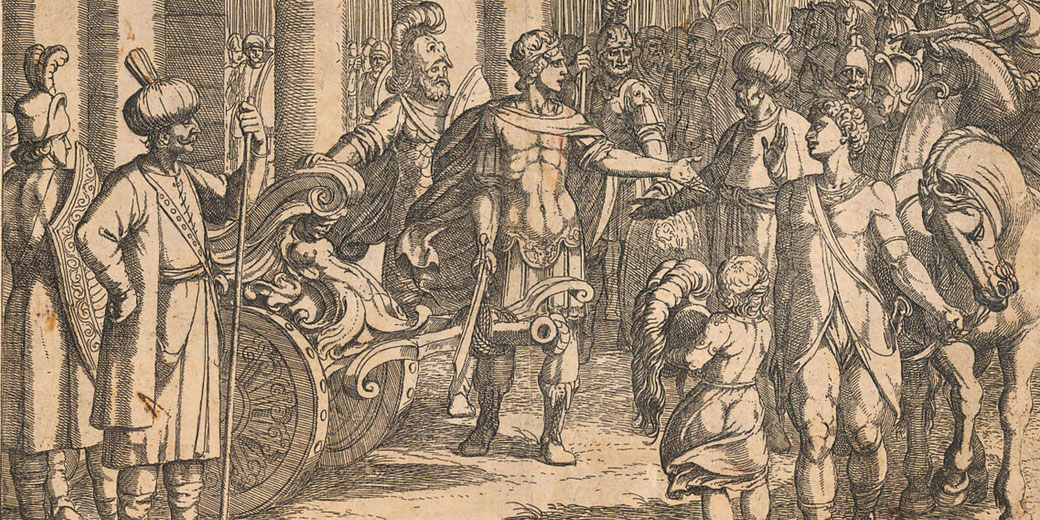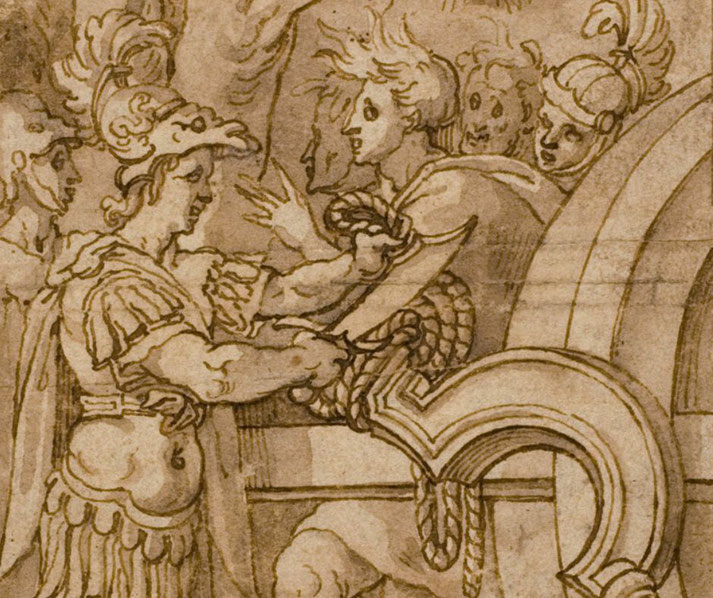Why Alexander the Great was the only person who could solve the mysterious Gordian Knot

In the Phrygian city of Gordium in the late 4th century BC, there was a complicated knot tied to a wagon that challenged all who attempted to untie it.
According to prophecy, the person who unraveled the knot would become the ruler of Asia. As Alexander the Great passed through this city, he learned about this puzzle.
Fresh from his remarkable battlefield victories over the mighty Persian empire, he was determined to defeat this much simpler challenge.
The legend of the Gordian Knot
According to the Phrygian myth, the knot was an intricate and convoluted mass of rope that secured an ox cart to a post.
It was tied by Gordius, a peasant who became king after an oracle prophesied that the next person to enter the city driving an ox cart would be crowned ruler.
As a symbol of gratitude, Gordius dedicated his cart to Zeus, the king of the gods.
As part of this ritual, he tied it with a complex knot that no one could untie. The oracle then declared that the person who untied the knot would become the ruler of all Asia.
Centuries passed, and the Gordian Knot remained an unsolved enigma. However, it drew many curious minds and ambitious leaders from across the region.

How Alexander the Great solved the Gordian Knot
In the winter of 333 BC, Alexander arrived in Gordium, a city in Phrygia, as part of his quest to expand his empire.
The young Macedonian king was drawn to the challenge of the Gordian Knot.
Upon encountering the knot, Alexander studied its complex structure, searching for a solution.
With the eyes of his soldiers and local spectators upon him, he realized that a conventional approach would not suffice.
In a bold move, Alexander drew his sword and sliced through the knot. That single cut effectively ‘undid’ it in one swift action.
For the ancient writers that recorded this event, it was a propaganda masterstroke, as it bolstered his reputation as a leader capable of overcoming insurmountable obstacles.
Then, following this event, Alexander continued his conquests, eventually creating an empire that spanned three continents.
So, in the end, perhaps the prophecy was right.

In the narrative of Alexander the Great's military successes, the cutting of the Gordian Knot demonstrated his willingness to think outside conventional boundaries and take decisive action.
For many observers throughout history, this act has been interpreted as a symbol of bold leadership and the power of creative thinking.
Ultimately, it highlights the idea that sometimes, to overcome complex obstacles, a fresh perspective is needed.
What do you need help with?
Download ready-to-use digital learning resources
Copyright © History Skills 2014-2025.
Contact via email
With the exception of links to external sites, some historical sources and extracts from specific publications, all content on this website is copyrighted by History Skills. This content may not be copied, republished or redistributed without written permission from the website creator. Please use the Contact page to obtain relevant permission.





